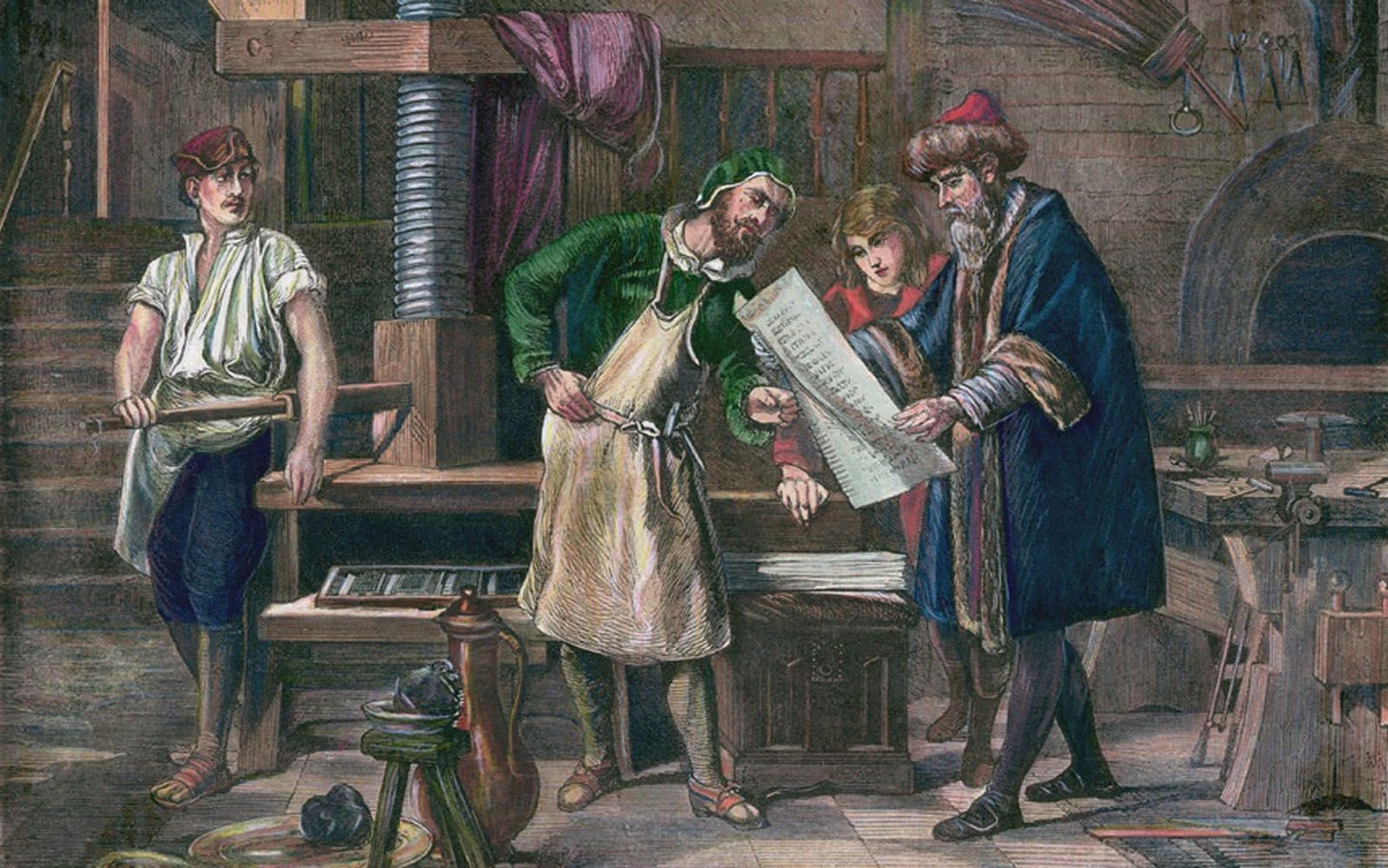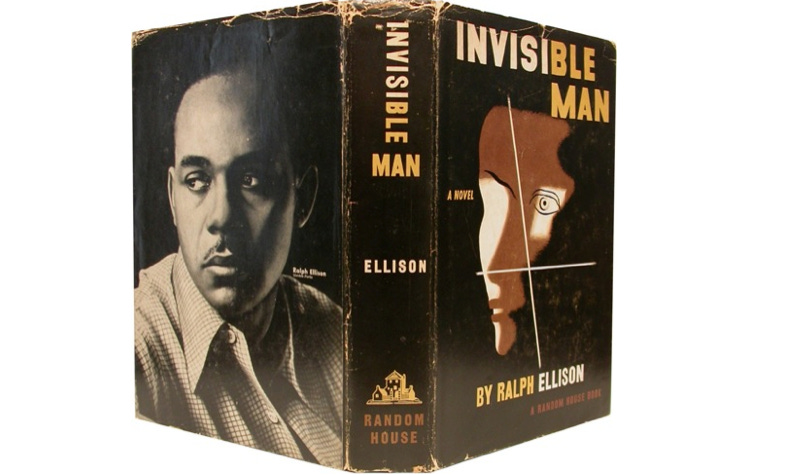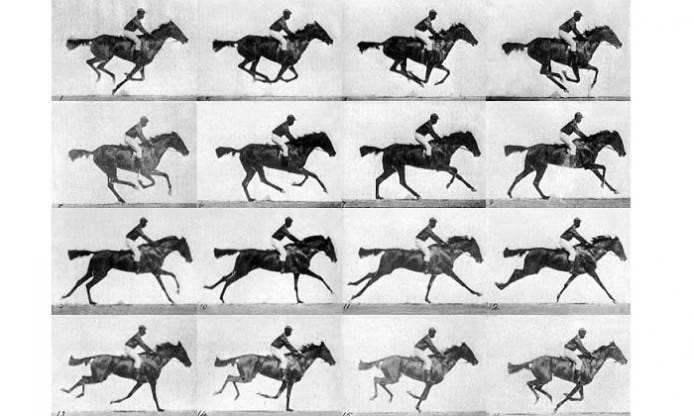One of the coolest parts about living today is the capacity to create anything. This was, and always will be (hopefully) true, in a general sense — but it's now much more true, in a practical sense, for many more people than ever before. If you have an idea, there is not only the technology, but a well-coordinated system of interlocking and accessible components waiting to serve you and facilitate your creation. The unstoppable spread of key ideas like capitalism, democracy, literacy, rule of law, general health practices, etc., have given more people the adequate freedom and safety to focus their energy on building things and delivering services to others, including those who seek to build more things. You—the creator—are the only limitation.
For instance, if you want to be a writer, there is no better time than today to make that dream a reality. For one, you're reading the words I've written just now. But I mean this in a much broader and more substantial way than blogging (not that blogging isn't an incredibly powerful concept — it is!). If you, say, want to be a novelist, you first need to get really, really good at writing, which requires reading a ton of work by other really good writers. Before the mid-late 1800s this was not a feasible proposition for the vast majority of people. Before then, you basically had to be a person of means, located in a place with relatively free access to a lot of books. Before 1450 you had to be a member of the clergy, one of the high elite of the merchant class, or literal royalty to both know how to read and have access to extremely limited hand-copied manuscripts. This changed drastically with Johannes Gutenberg's printing press, which enabled the mass production of roughly 20 million books over fifty years to 1500, which then enabled literacy rates to rise exponentially. Then came the Protestant Reformation (Bibles!), the Enlightenment (Science!), and the Industrial Revolution which brought about steam-powered presses, cheap paper, and the railroad to deliver affordable books across the country. Not to mention the establishment of public schools and public libraries to store books and grant access to a wide variety of books.
Once we hit 1900, it was very possible — through grit, determination, and persistence — to become a novelist if you wanted to, but getting distribution was a totally different ballgame. The limitations moved from simple, but unconquerable hurdles like "I can't read," or "What's a book?" and moved to harder to solve or more pernicious barriers like "Where do agents hang out?" or racism/sexism/classism/regionalism. Over time, of course, a more robust and meritocratic publishing ecosystem developed—good people got published more often—but there are still massive barriers to getting a book, including possibly a good one, printed and distributed through the traditional publishing house process.
Today, distribution is free, if you want it. As I glibly suggested earlier, you are reading my words right now, because I have access to the Internet and make use of this platform called Substack that helps me disseminate my irregular missives to a defined group of hundreds of subscribers, but also allows me to collect my publications in one place, accessible via URL that can be shared with a virtually infinite number of potential readers. I don't publish fiction here on Getting A Grip, but I could if I wanted to (for now I keep that kind of writing under lock and key, lest I scar your eyes with overly ambitious plot structures and poorly drawn characters).
And one step further: Today, if you have the inclination to become a novelist, take the time to thoughtfully read hundreds of those imminently accessible books by past successful writers, the grit and persistence to write 100,000 words, and then to re-write them through several drafts, you can become a novelist. And not only that: you can get free distribution to a virtually limitless number of potential readers. And then you can even make use of that well-coordinated and interlocking system of service providers known as capitalism to even self-publish with ease! Digital publication of a PDF or eBook for distribution via Apple Books, Kindle, Nook, and public libraries is FREE. A "print-on-demand" contract, where a company like IngramSpark holds your digital copy and only prints when one is ordered and paid for, can be set up for as little as $2.50 per copy. And ultimately, by working with a "short-run" printer a novelist can print as few as 50, or as many as 500 copies for as little as several hundred dollars.
If you want to be a novelist; the only barrier is you.
A VERY similar story can be told about movies. From Daguerreotype development in 1839 to the 1888 Kodak Box Camera ("You press the button, we do the rest"), taking pictures became democratized. Pictures were moving ten years earlier when Eadweard Muybridge created "The Horse in Motion," and by the 1920s affluent hobbyists were shooting film at home. Then came the Polaroid instant camera in the '40s, the digital camera in the '70s, the camcorder in the '80s, and the first phone camera in the '90s. YouTube came in 2005, the iPhone in 2007. I saw Unsane in the theater in 2018, it was completely shot on iPhone, and it was three years behind the breakthrough Tangerine (2015) from Anora's Sean Baker, shot in the same manner. This year, I sat in the theater and watched 28 Years Later; also shot via iPhone. And just about every day I watch some piece of absolutely stunning online content also shot on an accessible device and edited with a free or cheap app and distributed for free on YouTube.
If you want to be a filmmaker; the only barrier is you.
The list of other opportunities like this is endless. If you want to be an activist, you can talk about your passion on Substack, connect with thought leaders on Twitter (X), spread your campaign on TikTok, organize on Facebook, and get donations via Kickstarter or GoFundMe. If you want to be a fashion designer you can use a pen and paper to sketch your ideas, use your iPhone to take a picture of the best ones, move them into a pattern-making software application, email your designs to a manufacturer in Vietnam, have your shirts stored, packaged, and shipped by Amazon. If you want to be a musician, a journalist, an investor, or any kind of entrepreneur; a similar narrative is available to you.
If you want to create; the only barrier is you.
Now, go out there and build something.





A great reminder that I need to ramp up my work on season 2 of The Jabbari Lincoln Files podcast!
What a humbling and effective kick in the pants! Thanks for the reminder that limiting beliefs don’t have to be believed